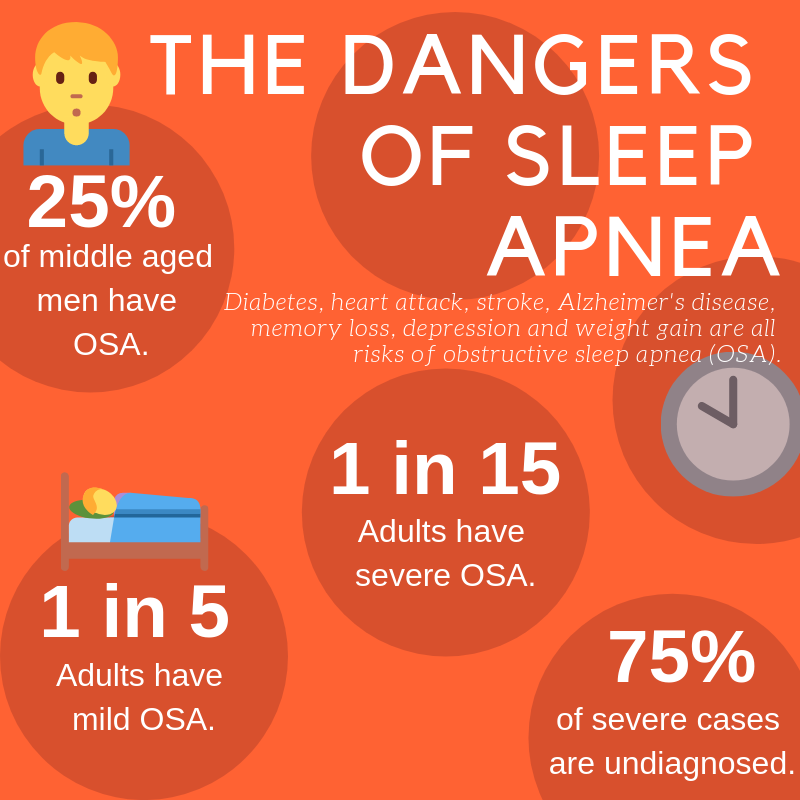OSA (Obstructive Sleep Apnea) can be a very serious sleep disorder. It has to do with difficulty breathing during sleep. Some will even stop and start breathing again.
Signs of sleep apnea:
- Very loud snoring
- Period of times when one stops breathing during sleep
- Gasping for air during sleep
- Morning headaches
- Dry mouth at wake up
- There are different causes of sleep apnea-
- Obstructive sleep apnea:
This type of sleep apnea occurs when muscles in back of the throat relax. When muscles relax, the airway narrows or closes as one inhales. If one is not getting enough air, blood oxygen levels will lower. The brain receives a signal that one cannot breathe and will wake. Sometimes people are not even aware. This may happen anywhere from 5 to 30 times an hour during sleep, making it hard to have a deep, relaxing sleep.
This type of sleep apnea can happen to anyone, even children. Here are some risk factors:
- Excess weight- Obesity increases the risk due to fatty tissue around the upper airway.
- Narrow airways- Tonsils or adenoids can enlarge and block the airway.
- Smoking- People who smoke are three times more likely to have this type of sleep apnea due to inflammation of the airway.
- Family history- Sleep apnea may be genetic, a family member experience it.
2. Central sleep apnea:
This type of sleep apnea occurs when the brain does not send signals to the breathing muscles. Hence, there will be short spans of time when there isn't any effort to breathe. This can cause one to wake up with shortness of breath and have difficulties sleeping through the night.
This type of sleep apnea can happen to anyone, even children but some risk factors include:
- Being a male- More men than women have been diagnosed with OSA (Obstructive Sleep Apnea).
- Heart disorder- Congestive heart failure increases risk.
- Being older- Older people have a higher risk of developing OSA.
- Stroke- Can develop if one has had a stroke.
- Narcotic pain medicine- Taking opioid medication can increase the risk.
Some people wear a sleep apnea machine called a CPAP (Continuous Positive Airway Pressure), while sleeping to aid with oxygen consumption.
Signs of children who may have sleep apnea:
- Loud snoring
- Reflux
- Frequent arm and leg movement during sleep
- Unusual sleeping positions with the neck extended
- Bedwetting
- Hyperactivity-ADHD




